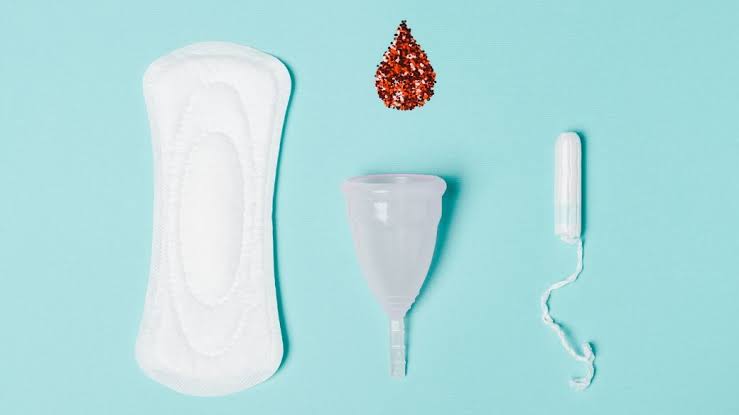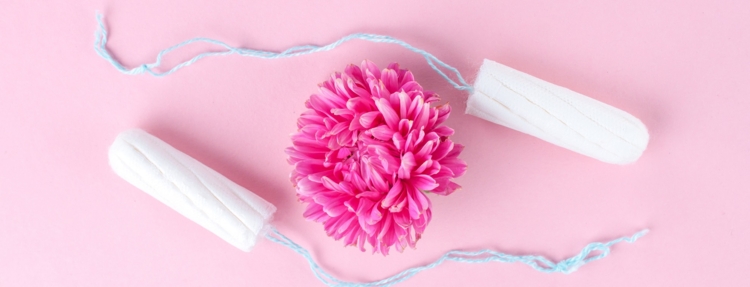Are you looking for a more eco-friendly and sustainable alternative to pads? Look no further! In this article, we will explore the best pads alternatives, offering you a range of options that are not only better for the environment but also provide comfort and cost-effectiveness.
Say goodbye to heavily packaged disposable pads that end up in landfills and hello to reusable and biodegradable options that will revolutionize your menstrual care routine.
Contents
5 Best Pads Alternatives For Women
When it comes to managing your menstrual flow, there are several eco-friendly and sustainable alternatives to traditional pads. Each option offers its own unique benefits, allowing you to choose what works best for you. Let’s explore some of the popular pads alternatives:
1. Tampons
Tampons are a widely-used option for menstrual care. They are inserted into the vagina to absorb the menstrual flow. Made from similar materials as pads, tampons are designed to be discreet and comfortable. However, it’s important to note that tampons come with potential risks, such as Toxic Shock Syndrome (TSS), a rare but serious infection.
2. Menstrual Cups
Menstrual cups have gained popularity in recent years as a reusable and cost-effective alternative. These bell-shaped or bowl-shaped cups are made of rubber, silicone, or soft plastic. Inserted into the vagina, they collect menstrual blood and can be emptied and rinsed for reuse. Menstrual cups have been shown to have high user satisfaction rates and can be worn for up to 12 hours depending on your flow.
3. Period Panties
Another innovative option is period panties. These are specially designed underwear that have built-in absorbent layers to replace the need for pads or tampons. Period panties offer leak-proof protection and can be washed and reused, making them both eco-friendly and convenient. They come in various styles, sizes, and absorbencies to suit your needs.
4. Organic Disposable Pads
If you prefer the convenience of disposable pads but want a more sustainable option, organic disposable pads are worth considering. These pads are made from natural and biodegradable materials, reducing their impact on the environment. They are free from harmful chemicals and synthetic materials, providing a healthier choice for your menstrual care.
5. Reusable Cloth Pads
For those seeking a more traditional approach, reusable cloth pads offer a comfortable and eco-friendly solution. Made from soft fabrics like organic cotton or bamboo, these pads can be washed and reused, reducing waste. They are available in various sizes and absorbencies to accommodate different flows.
Why Consider Alternatives to Pads?

If you’ve been using traditional pads for your period, it’s time to explore the world of alternative options that are not only better for your health but also for the environment. Here are a few reasons why you should consider making the switch:
1. Environmentally:
- Reduce waste and plastic pollution.
- Lower carbon footprint.
2. Health:
- Reduce risk of infections.
- Improve comfort and control.
3. Economically:
- Save money in the long run.
- Support sustainable businesses.
4. Socially:
- Break taboos and stigma.
- Promote sustainability and empowerment.
How to Choose the Right Alternative for You?

Here are some factors to consider when choosing the right alternative for you:
1. Comfort:
Consider the level of comfort you want during your period. Some alternatives, like menstrual cups and period panties, may take a little getting used to, but many users find them comfortable once they’ve adjusted. On the other hand, if you prefer the familiar feeling of a traditional pad, organic disposable pads may be the best option for you.
2. Absorbency:
Think about the level of flow you experience during your period. Different alternatives offer varying levels of absorbency. If you have a heavy flow, you may want to opt for reusable cloth pads or menstrual cups, which can hold more fluid and provide longer-lasting protection. For lighter flows, period panties or organic disposable pads may be sufficient.
3. Cost-effectiveness:
Consider your budget and how much you’re willing to spend on period products. While some alternatives may have a higher upfront cost, they can save you money in the long run. Reusable options like menstrual cups and cloth pads are designed to last for years, reducing the need for constant repurchasing. On the other hand, if you prefer the convenience of disposable options, organic disposable pads may be a more affordable choice.
4. Sustainability:
If reducing waste and being environmentally conscious are important to you, then reusable options like menstrual cups, period panties, and cloth pads are excellent choices. These alternatives significantly reduce the amount of waste generated from disposable pads or tampons, making them more sustainable.
5. Health Considerations:
Some individuals may have specific health concerns or sensitivities that influence their choice of alternative. For example, if you have allergies or sensitivities to certain materials, organic disposable pads or cloth pads made from organic and hypoallergenic fabrics may be the best option.
Frequently Asked Questions
Can you have a period without needing a pad?
Yes, it is possible to practice free bleeding, where you menstruate without using tampons, pads, or other menstrual products to absorb or collect your flow.
What is a reusable alternative to pads?
Period underwear, menstrual cups, and menstrual discs are some eco-friendly alternatives to traditional pads.
How can I make my own sanitary pad?
Cut a piece of cotton into a long shape with rounded ends. Sew the cotton piece to a longer fabric piece with wings on the edges.
I am a medical student with experience and interest in Women’s health and well-being.